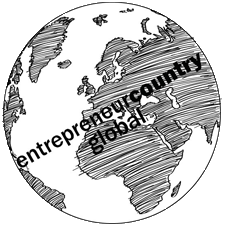Entrepreneurship in Israel: The Solution to Conflict?
I’m a big fan of Israel, having spent a period on a Kibbutz in the North of the Country in the eighties, followed by Christmas in Eilat in 1999. I also work full-time in the Arab world, so I feel very sympathetic towards the Middle East generally, which was why I chose to spend Christmas 2012 in the Holy Land.
Flight availability was good, which was probably due to sensationalist reports of bombing in Tel Aviv, so I didn’t book till the day before Christmas Eve. When I got to Tel Aviv, however, I chatted with a Jewish café worker who told me that the bombing was a fairly regular occurrence and that the City’s defence systems were generally pretty good at destroying the rockets before they hit the ground. And I must admit the atmosphere was pretty relaxed in and around the City. In fact the accompanying feeling of surprise reminded me of my experience of arriving in Israel as a backpacker back in July 1989, which was about 18 months post the Intifada and judging by the reports in the UK press back then (as well as now), Israel may just as well have been burning!
Yes, there was some very low grade tension in faces here and there when the subject of the bombing was raised, but otherwise there was very much a casual and upbeat air of business as usual. In fact, I spent a sunny Christmas day lunch close to the beach chatting with another Jewish café worker about the troubles. Isaac came across as a very cosmopolitan guy and so it didn’t surprise me when I learned he’d lived in London and Zurich as a young man. And bearing in mind he was well travelled, I was interested in hearing his views on the conflict. Isaac told me that an insidious ‘negative entrepreneurship’ existed in all conflict zones, where weapons suppliers and other ruthless individuals were exploiting community friction and economic depression for their own ends. Isaac was also in complete agreement that these conflicts don’t and never have belonged to the psyche of the decent, normal person anywhere in this world and the only way to achieve peace is for reasonable people on both sides to find each other and join forces to formulate their own joint economic and entrepreneurial goals. Isaac also said that actively mentoring those who are less fortunate was paramount, so that they don’t get involved with the ‘wrong crowd’ as it were – a strategy through which he believes the evil and ruthless will eventually be rendered impotent.
After three days in Tel Aviv I took the bus to Jerusalem, where I spoke to a number of Arabs who were working in and around the City. A couple of people that I spoke to who had children at University in Europe felt embarrassed in exactly the same way as Mike described in relation to how their country appeared on the international scene. ‘Do you think people think we are all savages?’ enquired Abdel, my cab driver, as we sped through the evening sun towards the Jaffa Gate. However, I was quick to dismiss his concerns with the reassurance that most thinking people around the world view these conflicts for what they are – fights physically undertaken by the uneducated, the dissipated and the mentally ill. I also said that I believed if such conflicts were resolved for good, these individuals would rapidly be replaced with life-enhancing innovators and visionary leaders.
The Arab and Jewish individuals that I engaged with acknowledged there had been injustices on both sides but they saw no other option but for these issues to be resolved in a peaceful, pragmatic way and at local level, not as part of a tiresome series of phony, self-serving and grandiose gestures and moves by politicians. In fact, they appeared to view the land issues in a similar spirit as we might view our UK housing crisis – it is an issue which at heart is very banal and can only be solved by common sense cooperation, organisation, focus and commitment in a parochial setting, not by fist, bullet or political claptrap accompanied by endless and useless theoretical analysis by the press at home and abroad.
I thus came to the conclusion that skilful human coordination of co-entrepreneurial activity appears to be the name of the game when it comes to establishing a solution to such conflict. However, the human networking and coordination tools of co-entrepreneurship appear to be sadly lacking in any educational curriculum and thus there is no blueprint for its rapid and efficient adoption of such a system anywhere in the world.
My trip to Israel at the end of 2012 firmly underlined my belief that co-entrepreneurship, not pure capitalism, is the key to a stable, fair and prosperous future for all. And if we are to truly call ourselves a civilised society, then I honestly cannot see any other overarching strategy through which the human race can genuinely progress.
- Tags: blog, entrepreneurcountry, entrepreneurs, entrepreneurship, featured, israel, martina keens-betts, tel aviv
